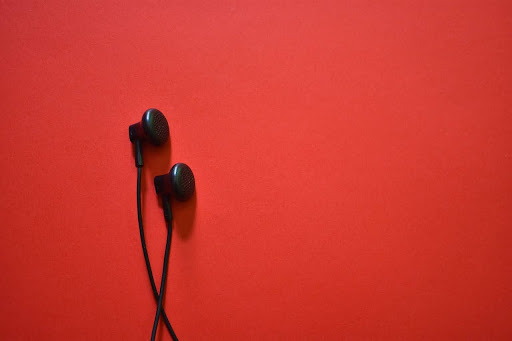Hearing is one of the most vital senses, allowing people to communicate, enjoy music, and stay aware of their surroundings. Despite its importance, many individuals unknowingly engage in daily habits that can damage their hearing over time. Whether it’s exposure to loud noises, improper ear cleaning techniques, or neglecting hearing protection, these routines can contribute to gradual hearing loss, imapaired hearing health or even sudden damage.
Unlike other health issues that may show immediate signs, hearing damage often occurs gradually, making it difficult to detect until it becomes a significant problem. Many people only realize they have hearing issues when they struggle to understand conversations, experience ringing in their ears, or notice a decline in their ability to perceive sounds clearly. By becoming aware of these harmful routines and making simple changes, individuals can protect their hearing and maintain good auditory health for years to come.
Overusing Earphones and Listening to Loud Music
One of the most common habits that can negatively impact hearing health is listening to music at high volumes through earphones or headphones. With the rise of personal audio devices, people often immerse themselves in music, podcasts, or videos at excessive volume levels, sometimes for extended periods. The problem arises when sound levels exceed safe limits, leading to potential noise-induced hearing loss.
The World Health Organization (WHO) recommends keeping audio device volume levels below 85 decibels to prevent damage. However, many people regularly listen to music at volumes much higher than this, especially when using noise-canceling or in-ear headphones. Listening at such high volumes can cause damage to the hair cells in the inner ear, which are responsible for transmitting sound signals to the brain. Once these cells are damaged, they do not regenerate, leading to permanent hearing loss.
To prevent hearing damage, it’s best to follow the 60/60 rule—keeping the volume at no more than 60% of the maximum level and limiting listening time to no more than 60 minutes at a stretch. Using over-ear headphones instead of in-ear models can help reduce direct exposure to high sound levels.
Improper Ear Cleaning Techniques
Many people attempt to clean their ears using cotton swabs, believing it to be a necessary part of hygiene. However, this common practice can actually do more harm than good. The ear is designed to clean itself naturally, and using cotton swabs can push earwax deeper into the ear canal, leading to blockages, infections, or even damage to the eardrum. The importance of ear wax removal is often misunderstood, as earwax serves a protective function by trapping dust, bacteria, and debris. While excessive earwax buildup can cause hearing issues, removing it incorrectly can be even more harmful. Instead of using cotton swabs, safer alternatives such as ear drops, warm water rinses, or professional earwax removal should be considered. If there is persistent ear discomfort or blocked hearing, consulting a healthcare professional is the best approach.
Frequent Exposure to Loud Environments
Many people are frequently exposed to loud noises in daily life, whether at work, in social settings, or during recreational activities. Construction sites, concerts, nightclubs, and sporting events all pose a risk to hearing health due to excessive noise levels. Even seemingly harmless activities such as using power tools, mowing the lawn, or riding motorcycles can expose ears to dangerously high decibel levels over time.
When exposed to loud noise, the delicate structures of the inner ear can become overstimulated, leading to temporary or permanent hearing loss. Tinnitus, a ringing or buzzing sensation in the ears, is a common symptom of noise-induced hearing damage. While temporary tinnitus may fade, repeated exposure to high noise levels increases the risk of long-term hearing impairment.
Ignoring Signs of Hearing Loss
Many people dismiss early signs of hearing issues, assuming that difficulties in hearing conversations or experiencing occasional ringing in the ears are temporary. However, ignoring these warning signs can lead to further damage and make treatment options less effective.
Hearing loss can occur gradually, making it easy to overlook subtle changes. Common indicators include frequently asking others to repeat themselves, struggling to hear in crowded places, turning up the volume on electronic devices, or experiencing a sensation of pressure in the ears. While these symptoms may seem minor at first, they can be early signs of deteriorating auditory health.
Poor Ear Hygiene and Frequent Ear Infections
Ear infections are a common but often overlooked cause of hearing damage. Frequent infections, particularly in childhood, can lead to long-term complications if left untreated. Bacterial or viral infections can cause inflammation in the middle ear, leading to fluid buildup and temporary hearing loss. In severe cases, repeated infections can cause permanent damage to the eardrum or inner ear structures.
Preventing ear infections involves practicing good hygiene and avoiding habits that introduce bacteria into the ears. This includes drying ears thoroughly after swimming or showering, avoiding inserting objects into the ear canal, and seeking prompt medical attention for persistent ear pain or fluid drainage. Keeping ears clean and healthy reduces the likelihood of infections that could contribute to hearing problems.
Regular hearing checkups are an important part of overall health maintenance. Just as routine eye exams or dental visits help detect issues early, hearing tests can identify problems before they become severe. By staying proactive and addressing potential hearing risks early, individuals can preserve their hearing and enjoy a lifetime of clear and healthy sound perception.

